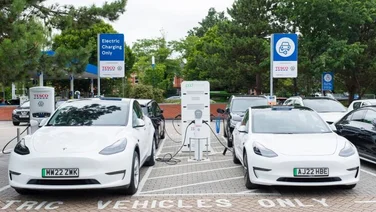- Landlords will need an EPC rating C or above by 2030
- The move is part of the government’s Plan for Change
- Almost half already meet this requirement

Private landlords will be required to meet a standard of Energy Performance Certificate C or equivalent – up from the current level of ECP E – as part of plans that could save renters £240 a year on bills.
The Department for Energy Security and Net Zero claims families have faced rocketing energy bills as a “direct consequence of an overreliance on international gas markets”, with thousands of tenants left exposed to cold and draughty homes.
As a result, the government is now looking to accelerate its Plan for Change initiative, with private landlords mandated to hit higher EPC ratings in their properties by 2030.
Angela Rayner, deputy prime minister and housing secretary, said that many tenants are “plagued by shoddy and poor conditions in their homes”.
Almost half of private rented homes (48%) in England already meet an EPC rating C or above, but ministers now want to ensure this is extended to all properties, making sure landlords are not undercut, while protecting tenants.
The result of the mandate will deliver on the priorities of working people, as part of prime minister Sir Kier Starmer’s Plan for Change, by requiring landlords to invest in measures that help warm homes and make them more sustainable. These can include loft insulation, cavity wall insulation or double-glazing.
Rayner added that this move is “one of the many steps they are taking” to deliver on its promise to transform the lives of millions of renters across the country.
Energy secretary Ed Miliband said the plans will “make sure that all private landlords are investing in their properties, building on the good work of many to upgrade their homes to EPC C or higher already.”
The government is now seeking views from tenants and landlords on the proposals to boost living standards and cut the cost of energy bills. These include:
- Offering landlords a choice over how to meet energy efficiency standards. This will require them to meet a fabric standard through installing measures, such as loft insulation, cavity wall insulation or double glazing, before moving onto a range of other options, including batteries, solar panels and smart meters
- A maximum cap of £15,000 per property for landlords, with support currently available from the Boiler Upgrade Scheme and Warm Homes: Local Grant, which begins delivery this year
- An affordability exemption, which could lower the cost cap to £10,000 and could be applied based on lower rents or council tax band
- Requiring all landlords to meet the new standard by 2030 at the latest, providing an additional two years compared with previous proposals. Homes that are already rated A-C before the introduction of new EPCs would be considered compliant until they expire
Ministers are also consulting on a revised fuel poverty strategy, which will focus on improving the energy performance on improving the energy performance of homes, supporting low-income households with energy affordability and protecting them from high prices.






